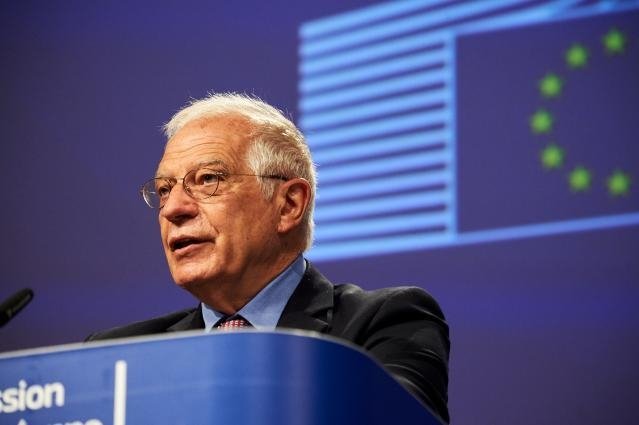
Education in the front line against the pandemic
Thoughts from Josep Borrell Fontelles, EU High Representative for Foreign Affairs and Security Policy / Vice-President of the European Commission
The following is an excerpt from an article by High Representative Borrell Fontelles featuring in the ETF's latest edition of Live and Learn Magazine.
Education in the front line
Coronavirus knows no borders. And neither does the economic and social impact of the global health crisis. Limitations on social interaction imposed to slow the spread of the virus have restricted economic activity worldwide, disproportionately affecting activities, such as travel, tourism, hospitality and retail, that are dependent on social contact. Education and training has been one of the hardest hit sectors. At the height of the lockdown, more than 90% of the world’s students were unable to attend school. Despite the remarkable efforts and creativity of teachers, schools and education systems to keep learning going during lockdown, as many as one third of students have been entirely cut from education. And inevitably the most vulnerable have been the worst affected.
Countries around the world, including the European neighbourhood and enlargement countries where the ETF is active, are facing profound economic and societal shocks. As a result, the European Union’s response to the Covid-19 crisis is necessarily a global one.
European Union in the lead
The European Union has been and will remain at the forefront of supporting education worldwide. It is also the leading international donor when it comes to supporting children. Through the Team Europe initiative and Next Generation EU, the EU and its Member states are supporting our external partners to fight Covid-19 and its socio-economic consequences. A significant part of that effort goes to children and schools. In our upcoming Comprehensive Strategy on the Rights of the Child and the Child Guarantee, we intend also to strengthen our support to digital education and the protection of the most vulnerable children.
In this context, the European Training Foundation plays a vital role in ensuring that the support that the EU offers to partner countries contributes to sustainable reforms of education, training and labour market systems to empower all citizens, in particular the most vulnerable, to acquire the skills they need to overcome the current challenges.
I will pay a lot of attention to make sure that all EU external policies continue to attach high priority to education and that we help ensure that all children have an equal start in life. Even in times as difficult as those of Covid-19.
Did you like this article? If you would like to be notified when new content like this is published, subscribe to receive our email alerts.